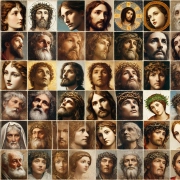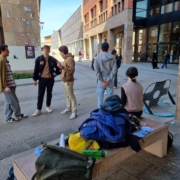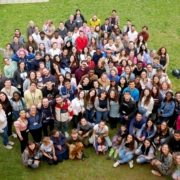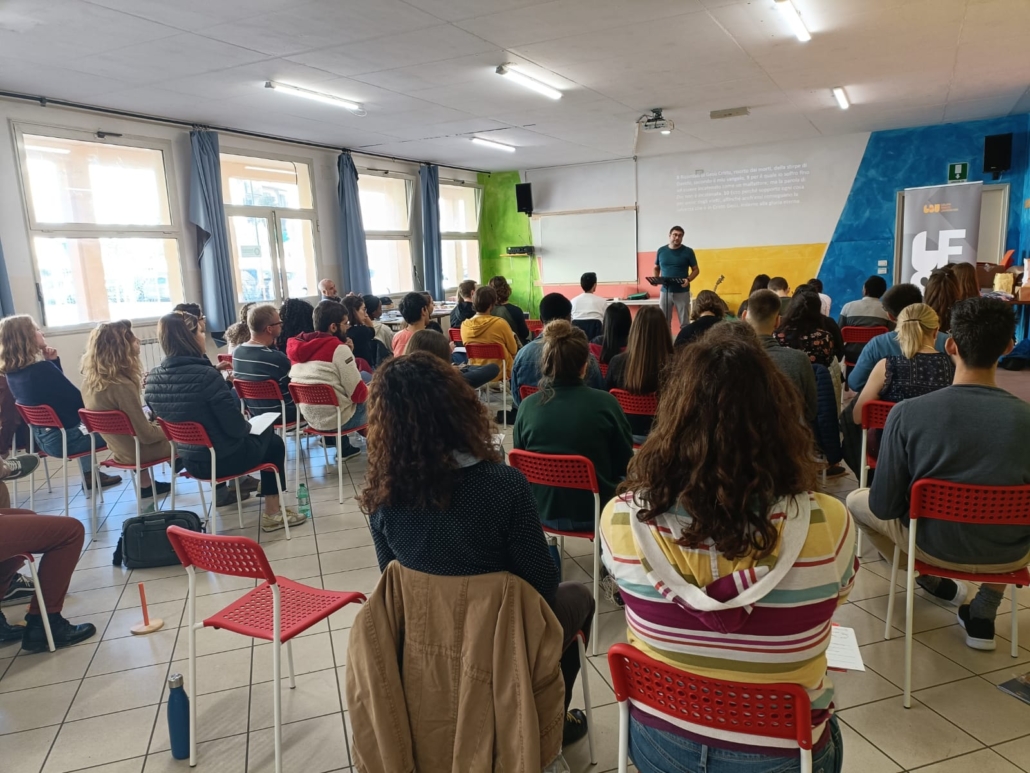Francesco tells his story in this interview: the decision to propose himself as General Secretary (GS), the emotions he has experienced in the last year and his wishes on the future of the GBU.
Francesco, the Board has chosen you as the new GS. How did you welcome this news? What feelings did you have?
It is news that gives me many new stimuli. I have been GBU Staff in Naples for over ten years, and I have had the opportunity to serve the Lord both in the local group and in various projects at national level. They have been very rich and formative years, but certainly this is a big change which brings with it many responsibilities and requires a lot of time to dedicate to it.
I was also surprised and encouraged by the many messages I received after the news was made public. People more or less close to the GBU world wrote to me, but I honestly did not expect so much affection. I thought, in fact, that the news would remain more internal to the GBU, and instead it was good to know that there are so many people who are praying and will pray for me, for this new commitment.
What was the thought process that led you to apply as the new SG?
The truth is that among the senior staff members is also me!
I was and am aware that I would not face many difficulties in terms of experience and knowledge of the GBU. Then there was a more personal reason, regarding the calling I feel to the GBU and the path we are on as a family.
Furthermore, after more than ten years in the GBU I feel more and more distant from the students, in the sense that it is becoming more and more complicated to take part in Bible studies in the faculty and to go and evangelise with the GBU students. If until a few years ago I could delude myself into thinking I was a (very) out-of-date student, now that I am about to turn forty… (laughs, ed).
I still want to be close to students like GS. But it will be in a different way and more in harmony with my new role. It is one of my goals in the coming years.
So you will have to leave your role as GBU Staff in Naples?
Yes, but thank God in Naples there will be Rebecca Iacone, who graduated a few years ago, finished her Staff in Training and now wants to stay and serve the GBU Naples group. This is one of those favourable circumstances which the Lord has prepared and which encouraged me to apply to be GS.
In addition to this, to be closer to my family and the local church we attend, we will soon be moving to Bacoli, moving away from Naples and the students a little. This family aspect is also more compatible with a national role than a commitment to a local GBU group.
Great then, you can happily devote yourself to your role as GS. What are your future dreams for the GBU?
I have a number of wishes and expectations for the GBU. They have matured in me naturally over these years, and I pray that they will inspire and motivate my commitment to this new role, and also the commitment of all GBU staff.
Some of these desires are fully in tune with the history of the GBU, and are to be preserved. Others are things we still need to work on or explore. I would certainly like the students to always maintain a central role in the GBU and in sharing the Gospel in the university, along with the centrality of the Word of God in everything we do.
I would also like the mission to strengthen its interdenominational dimension, being able to interact with different church realities in Italy, to reach out to those churches which do not yet know about the GBU. I hope and pray to be able to see this happen in the next few years. I have learned a lot about relationships with churches through my involvement with the ‘Noi Festival’ (an initiative of the Billy Graham Ass., ed.). It was very much a learning experience and I will strive to achieve a good result in the near future.
This interaction with churches is crucial for several aspects, including the possibility of having more students involved in Sharing Jesus in Italian universities.
One of the things you were involved in as GBU staff was ‘interacting with the university’. Do you think the GBU has room for growth in this aspect?
Yes, I would really like to be able to make a contribution so that the GBU is more active and able to answer university students’ questions and doubts. I would like students to be stimulated and challenged in this, but I would also like to involve professors and professionals, including international ones, who can address specific and relevant issues in the university environment.
There are also many ideas and wishes, but we will see as we go along. For the time being, I am living this transition period to the fullest, in which I am the ‘elected SG’, but not in office (laughs, ed.). These will be useful months for the handover and I will be able to interact well with Johan, who will be a great help during this phase.
Speaking of Johan, did you read his advice for you in his interview? What do you think about it?
Yes, I thank Johan for his affection, his esteem, but above all for his example. He has done a great job to give the GBU a structure that now allows us all to move with more ease and it will be the same for me in the role of GS.
I certainly want to maintain and also strengthen the structure that Johan created, in continuity with his work and in harmony with all GBU staff members.
One of the reasons I accepted the post was precisely the knowledge that I had a strong team, made up of people full of skills and spiritual gifts. It would be impossible to do my job without this talented team. My intention, of course, is to take Johan’s advice and rely on all the members of the GBU Staff family, as well as the other members of the fellowship.












